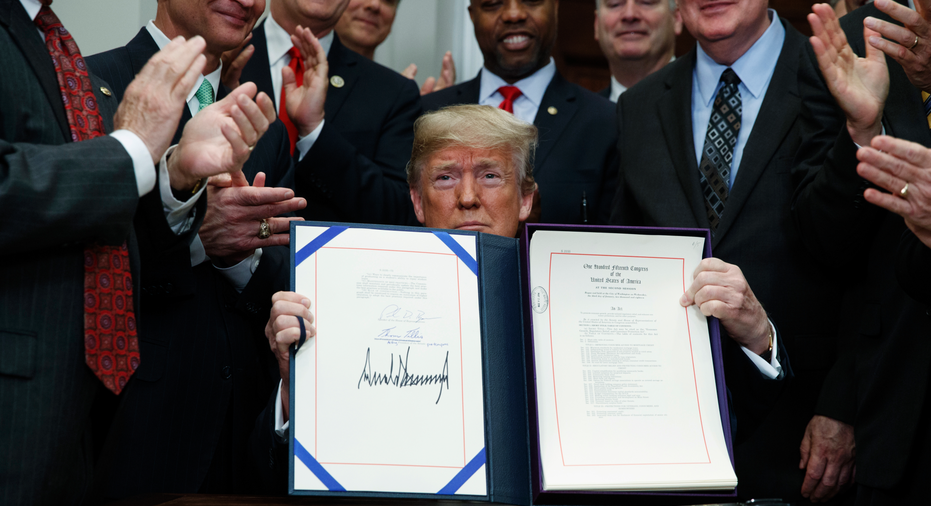Trump signs bill easing post-2008 crisis restraints on banks

WASHINGTON – President Donald Trump on Thursday signed into law a measure that loosens key restraints for banks imposed after the 2008 financial crisis and Great Recession. Savoring the legislative triumph, he called it "the next step in America's unprecedented economic comeback."
The Republican-crafted bill passed Congress on Tuesday with the help of some Democratic votes and allowed Trump to fulfill his campaign pledge of dismantling the landmark Dodd-Frank law. The 2010 law was enacted by President Barack Obama and Democrats in Congress in response to the crisis that brought millions of lost jobs and foreclosed homes.
Trump held a signing ceremony at the White House not long after announcing the cancellation of his planned June summit with North Korean leader Kim Jong Un.
The new law raises the threshold at which banks are deemed so big and plugged into the financial grid that if one were to fail it would cause major havoc. Such banks are subject to stricter capital and planning requirements.
Trump is gaining a major building block in his drive for business-friendly policy changes and easing of regulations that he says have stifled lending, economic growth and job creation.
"As a candidate, I pledged that we would rescue these community banks from Dodd-Frank, the disaster of Dodd-Frank, and now we are keeping that commitment," Trump said at the signing event in the Roosevelt Room.
Trump thanked the lawmakers at the event for playing a role in moving the legislation through the Senate and later the House. A lone Democrat also was there: Sen. Heidi Heitkamp of North Dakota, among the 16 Democrats who voted for the legislation when it passed the Senate in March. Heitkamp, who won her seat six years ago by only 3,000 votes, is facing a tight re-election race in a state Trump easily carried in the 2016 presidential race.
The banking law also adds to Trump's marquee pro-business legislative achievement, the sweeping tax bill enacted late last year that deeply cut taxes for corporations and wealthy individuals and offered more modest reductions for most ordinary Americans.
The law makes a fivefold increase, to $250 billion, in the level of assets at which banks are deemed to pose a major threat if they fail. The change eases regulations and oversight on more than two dozen financial institutions, including BB&T Corp., SunTrust Banks, Fifth Third Bancorp and American Express.
It was aimed at especially helping small and medium-sized banks, including community banks and credit unions.
"This is truly a great day for America, and a great day for small businesses and workers all over America," Trump said.
But critics say the likelihood of future taxpayer bailouts will be greater now that curbs have been eased. They point to increases in banks' lending and profits since Dodd-Frank's enactment in 2010 as debunking the assertion that excessive regulation of the banking industry is stifling growth.
Eventually, the exempted banks will no longer have to undergo an annual stress test conducted by the Federal Reserve. The test assesses whether a bank has a big enough capital buffer to survive an economic shock and keep on lending. The banks also will be excused from submitting plans called "living wills" that spell out how a bank would sell off assets or be liquidated in the event of failure so it wouldn't create chaos in the financial system.
The Dodd-Frank act, named after its co-authors, Democratic Sen. Christopher Dodd of Connecticut and Democratic Rep. Barney Frank of Massachusetts, boosted government oversight of banks.



















